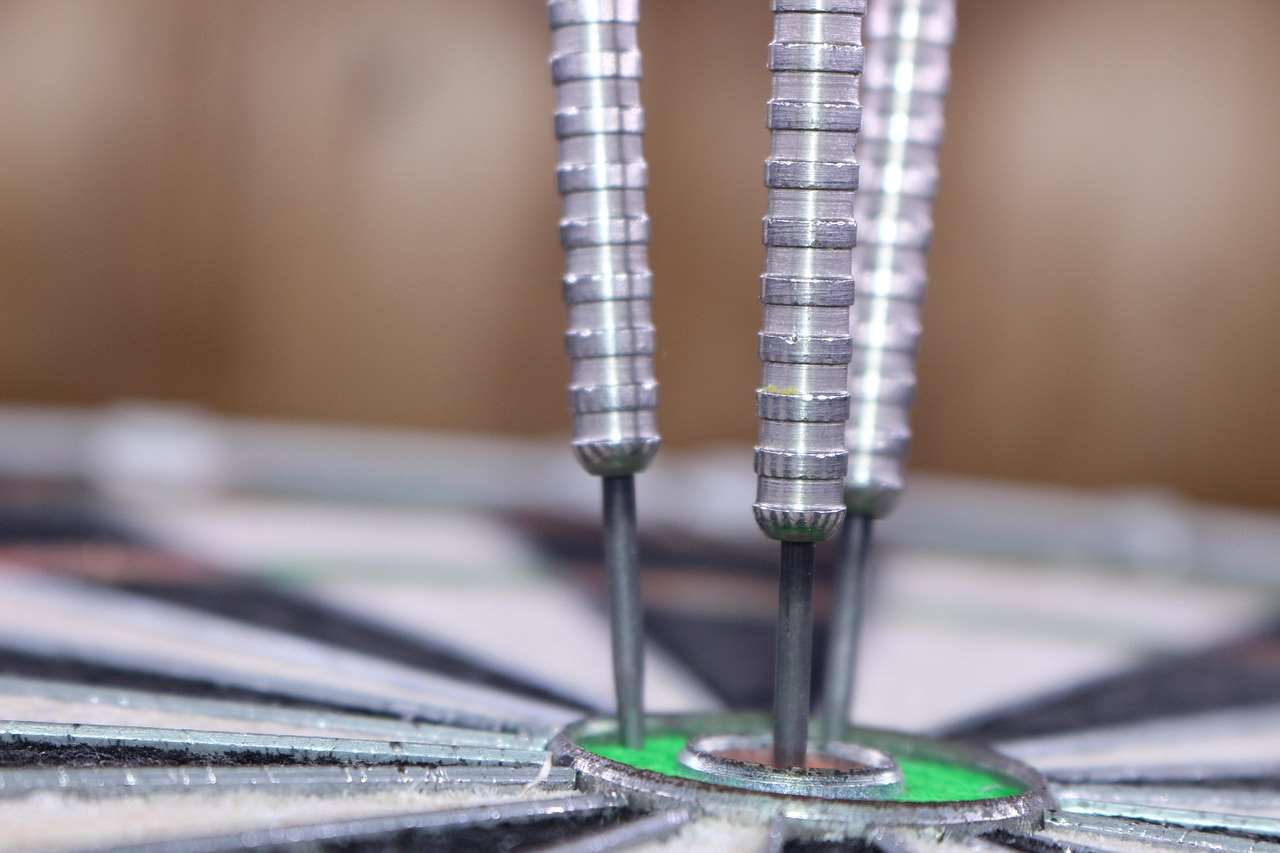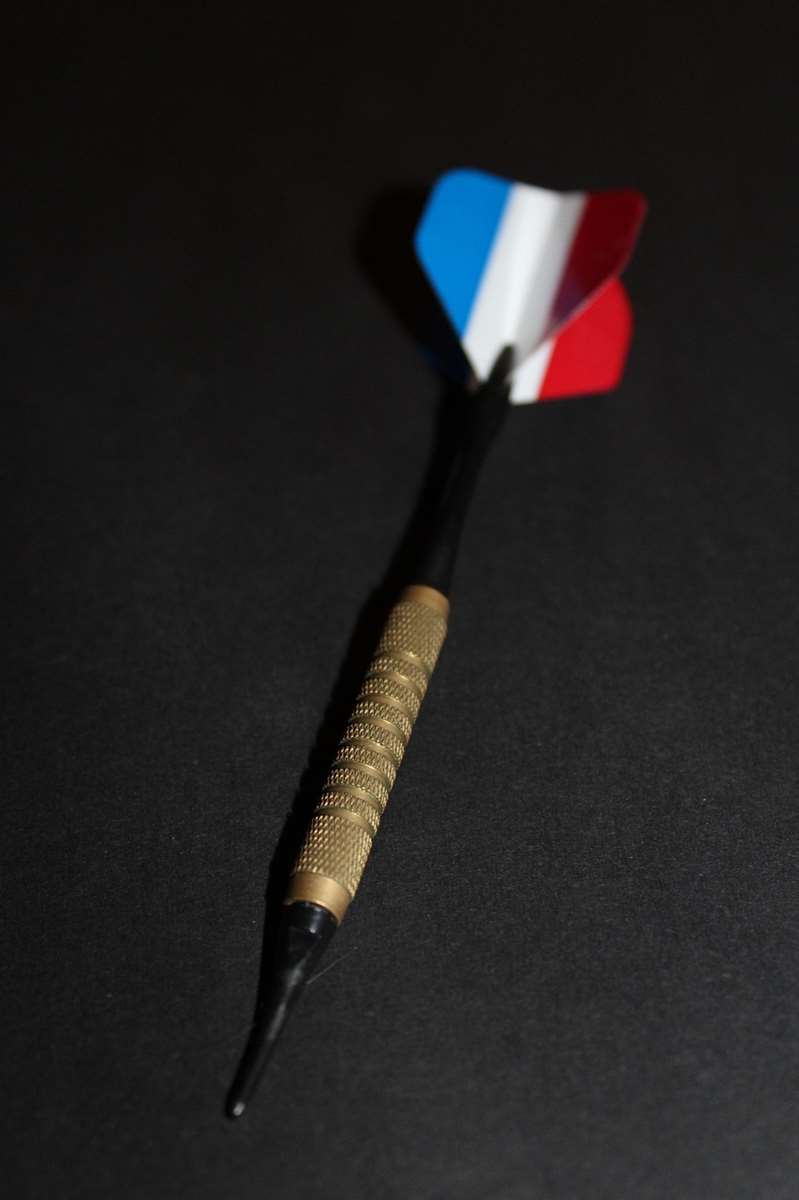Yes, **practice games develop muscle memory**, automating movements and improving consistency over time. This article explores how repetitive training solidifies motor skills, examining the science behind **muscle memory** and offering tips to optimize your practice regimen for peak performance.
⚠️ Still Using Pen & Paper (or a Chalkboard)?! ⚠️
Step into the future! The Dart Counter App handles all the scoring, suggests checkouts, and tracks your stats automatically. It's easier than you think!
Try the Smart Dart Counter App FREE!Ready for an upgrade? Click above!
How Practice Games Develop Muscle Memory: The Science Explained
At its core, **muscle memory**, more accurately termed motor learning, isn’t about your muscles “remembering” anything. It’s about your brain and nervous system becoming more efficient at executing specific movements. When you repeatedly perform an action, like throwing a dart or swinging a golf club, your brain creates and strengthens neural pathways associated with that movement. These pathways act like well-worn roads, allowing signals to travel faster and more smoothly, resulting in more fluid and controlled actions. Understanding how this process works is crucial to unlocking the full potential of **practice games**.
The cerebellum and the motor cortex are key players in this process. The motor cortex initiates the movement, while the cerebellum refines and coordinates it. With repeated practice, the cerebellum takes over more and more of the control, freeing up the motor cortex to focus on other tasks. This is why experienced athletes can perform complex maneuvers without consciously thinking about each step. You can also check out some Darts Variants Fun Games.

The Role of Repetition in Skill Acquisition
Repetition is the cornerstone of muscle memory development. Each repetition reinforces the neural pathways, making them stronger and more resistant to interference. However, simply repeating the same movement endlessly isn’t always the most effective approach. It’s important to incorporate deliberate practice, which involves focusing on specific aspects of the movement and actively seeking feedback to improve technique. Think about breaking down your dart throw into distinct steps: stance, grip, arm movement, release. Focus on perfecting each step individually, then integrate them into a seamless motion.
Furthermore, varying your practice routine can also enhance motor learning. Introducing slight variations in the task challenges the brain and forces it to adapt, leading to more robust and flexible neural pathways. For example, if you’re practicing darts, try throwing from different distances or aiming at different targets. This will help you develop a more adaptable and resilient skill set. Consider exploring some of the forgotten pub dart games for a fun way to vary your practice.
Optimizing Practice Games for Maximum Muscle Memory
To truly harness the power of **practice games** and **develop muscle memory** effectively, it’s crucial to approach your training strategically. Here are some actionable tips to optimize your practice regimen:
- Deliberate Practice: Focus on specific areas for improvement. Record yourself and analyze your technique.
- Consistency is Key: Regular, short practice sessions are more effective than infrequent, long ones. Aim for at least a few minutes of practice each day.
- Proper Form: Prioritize correct technique over speed or power. Practicing with poor form will only reinforce bad habits.
- Mental Rehearsal: Visualize yourself performing the movement successfully. This can help strengthen neural pathways even when you’re not physically practicing.
- Vary Your Practice: Introduce slight variations in the task to challenge your brain and improve adaptability.
- Get Feedback: Seek guidance from a coach or experienced player. Constructive criticism can help you identify and correct errors.
- Rest and Recovery: Give your body and brain time to recover after practice sessions. **Muscle memory consolidation** occurs during sleep.
By following these tips, you can transform your practice sessions into powerful tools for skill acquisition and **muscle memory development**.

The Benefits of Consistent Practice and Repetition
The advantages of consistent practice extend far beyond simply improving your performance in a particular game. **Consistent practice builds confidence**, reduces anxiety, and enhances your overall cognitive function. As you become more proficient at a skill, you’ll feel more comfortable and in control, allowing you to perform at your best under pressure. Furthermore, the mental discipline and focus required for effective practice can spill over into other areas of your life, improving your ability to concentrate and learn new things.
When you **practice games**, the power of repetition helps solidify your skills. Over time, you might even discover obscure dartboard games list to add to your list of options.
Breaking Down Complex Movements: A Key to Mastery
Many skills, such as playing a musical instrument or performing a complex athletic maneuver, involve a series of intricate movements. To master these skills, it’s often helpful to break them down into smaller, more manageable components. This allows you to focus on perfecting each individual movement before integrating them into a seamless whole. For example, if you’re learning to play the guitar, you might start by practicing individual chords before attempting to play entire songs. Similarly, in sports, athletes often break down complex skills like a tennis serve or a golf swing into distinct steps, focusing on each step individually before putting it all together.
By breaking down complex movements, you can avoid feeling overwhelmed and make the learning process more manageable. This approach also allows you to identify and correct any weaknesses in your technique, leading to more efficient and effective learning. Don’t forget to consider the dart games before 501 invented.

The Importance of Proper Technique and Avoiding Bad Habits
Practicing with proper technique is paramount for **muscle memory development**. If you practice with poor form, you’ll only reinforce bad habits, making it more difficult to correct them later on. It’s always better to start slowly and focus on mastering the correct technique before gradually increasing speed or power. Seeking guidance from a qualified instructor or coach can be invaluable in ensuring that you’re practicing with proper form. They can provide personalized feedback and help you identify and correct any errors in your technique.
Furthermore, it’s important to be mindful of your body and avoid pushing yourself too hard, especially when you’re first starting out. Overtraining can lead to injuries, which can set you back and hinder your progress. Listen to your body and take breaks when you need them. Remember, consistency and patience are key to long-term success.
Beyond Repetition: Cognitive Factors in Muscle Memory
While repetition is essential, **muscle memory** is not solely a physical process. Cognitive factors, such as attention, focus, and visualization, also play a significant role. When you’re practicing, it’s important to be fully present and engaged in the task. Avoid distractions and focus your attention on the specific movements you’re trying to master. Mental rehearsal, or visualizing yourself performing the movement successfully, can also be a powerful tool for enhancing motor learning. By mentally practicing the movement, you can strengthen the neural pathways associated with it, even when you’re not physically practicing.
Moreover, understanding the underlying principles of the skill you’re learning can also improve your performance. For example, if you’re learning to play a musical instrument, understanding music theory can help you grasp the concepts more quickly and efficiently. Similarly, in sports, understanding the biomechanics of a movement can help you optimize your technique. You might be able to discover rare dart game instructions that help you play better.

The Impact of Sleep and Recovery on Muscle Memory Consolidation
Sleep and recovery are crucial for muscle memory consolidation. During sleep, your brain processes and consolidates the information you’ve learned during the day, strengthening the neural pathways associated with new skills. Studies have shown that people who get enough sleep after learning a new skill perform better than those who don’t. Therefore, it’s important to prioritize sleep and allow your body and brain to recover after practice sessions. Aim for at least 7-8 hours of sleep per night.
In addition to sleep, proper nutrition and hydration are also essential for recovery. Eating a balanced diet and staying hydrated can help your body repair and rebuild muscle tissue, allowing you to recover more quickly from exercise. Avoid processed foods, sugary drinks, and excessive alcohol consumption, as these can interfere with recovery. Listen to your body and give it the fuel it needs to perform at its best. Discover more about the victorian era dart games.
Practice Games Develop Muscle Memory: Real-World Applications
The principles of **muscle memory** and motor learning apply to a wide range of activities, from sports and music to surgery and manufacturing. Athletes rely on **muscle memory** to perform complex maneuvers under pressure, while musicians use it to play intricate pieces without consciously thinking about each note. Surgeons depend on **muscle memory** to perform delicate procedures with precision and accuracy, while factory workers use it to assemble products efficiently and effectively. The ability to automate movements and perform them with precision and consistency is essential in many different fields.

Long-Term Retention and Maintaining Skills Over Time
Maintaining skills over time requires ongoing practice and reinforcement. Even after you’ve mastered a skill, it’s important to continue practicing regularly to prevent it from fading. The amount of practice required to maintain a skill will vary depending on the complexity of the skill and the individual’s learning style. However, even short, frequent practice sessions can be effective in maintaining skills over time. Furthermore, revisiting the fundamentals and consciously focusing on technique can help prevent bad habits from creeping in.
Remember, **muscle memory** is not a permanent state. Skills can fade over time if they’re not used regularly. Therefore, it’s important to incorporate regular practice into your routine to maintain your skills and continue to improve. So, continue to make sure that **practice games develop muscle memory**!
Conclusion: Embracing the Power of Practice
**Practice games develop muscle memory**, leading to improved performance, increased confidence, and enhanced cognitive function. By understanding the science behind motor learning and optimizing your practice regimen, you can unlock your full potential and achieve your goals. Remember to focus on deliberate practice, prioritize proper technique, and allow your body and brain time to recover. Consistency, patience, and a willingness to learn are key to long-term success. So, embrace the power of practice and start building those neural pathways today!
Ready to take your game to the next level? Start practicing today and experience the transformative power of **muscle memory**! Consider different strategies, such as old dart games rules, to help enhance your experience.
Hi, I’m Dieter, and I created Dartcounter (Dartcounterapp.com). My motivation wasn’t being a darts expert – quite the opposite! When I first started playing, I loved the game but found keeping accurate scores and tracking stats difficult and distracting.
I figured I couldn’t be the only one struggling with this. So, I decided to build a solution: an easy-to-use application that everyone, no matter their experience level, could use to manage scoring effortlessly.
My goal for Dartcounter was simple: let the app handle the numbers – the scoring, the averages, the stats, even checkout suggestions – so players could focus purely on their throw and enjoying the game. It began as a way to solve my own beginner’s problem, and I’m thrilled it has grown into a helpful tool for the wider darts community.